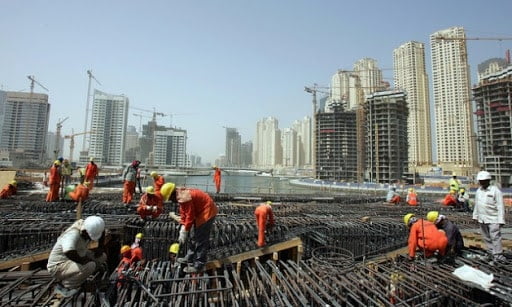COVID-19 Impact: Migrant Indian Workers Struggle In Gulf Countries

A large number of workers from India, Bangladesh, Pakistan, Nepal and the Philippines are facing the wrath of the coronavirus pandemic. They have been forced to live under unhygienic circumstances, without any source of income and could not return home due to travel restrictions, said a report in The New York Times.
The Gulf countries have also imposed a lockdown due to which the livelihood of the workers has been severely impacted. Some companies in Qatar have even stopped paying salaries to foreign workers, according to the report.
Recently, when Saudi Arabia said that foreign workers were the cause of half of COVID-19 cases, other Gulf countries got worried that they could become a coronavirus hotbed due to foreign workers.
Despite the lockdown and strict guidelines to the workers by the Gulf governments to stay at home, many companies, especially in the oil and gas sectors are continuously carrying out their production, exposing migrant workers to the deadly virus.
“If it spreads in the camps, it will be like wildfire, so all of these countries should have an interest in keeping it under control,” Gulf researcher for Human Rights Watch, Hiba Zayadin was quoted saying by The New York Times.
While these countries have announced a package to save their economies, according to activists, least has been done for the foreign workers due to corrupt systems driven with the motive of discrimination.
Even if these workers are living in company quarters, practicing social distancing is a distant dream for them. A Kenyan oil worker living with 450 others in a company compound in Qatar told The New York Times that “Crowding is a problem and washing hands is almost unrealistic.”
According to data, Saudi Arabia has nearly 5,000 confirmed COVID-19 cases, UAE has reported over 4,500 cases, Qatar has over 3,000 cases, total cases in Baharain stand at 1,367 and Oman has 727.

Comments are closed.